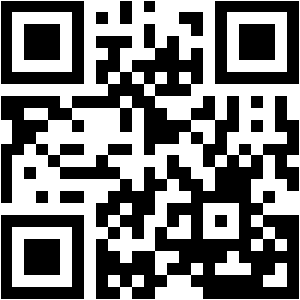EDF3034 MU: Children’s Literacy Development Assignment Singapore
| University | Monash University (MU) |
| Subject | Children's Literacy Development |
This assignment is designed to assist you in developing your ‘teacher eyes’. It requires you to:
- Choose a specific literacy ‘area of knowledge’;
- Assess a child between the ages of one to ten years old on this literacy ‘area of knowledge’ using two or more literacy assessment tools
– Identify a specific long-term literacy goal for the child
– Craft an individualized literacy plan containing a specific activity to support the child in meeting the literacy goal
• Write a specific literacy performance objective detailing what/ when/where/how one will gather information on the child’s literacy progress L
PART 1- Justification
In this section, briefly describe the importance of the specific literacy content area chosen, discuss the assessment tools used to assess the chosen literacy ‘area of knowledge’, give a rationale for the assessment tools used, and explain how you intend to assess the child capitalizing on their resources, strengths, context, etc.
- For instance, if you use a picture book as a ‘play-based assessment tool’. then-
- First, you need to choose a children’s picture book and think about how you might read this with the child (keeping in mind what you have planned to assess–content area chosen).
Consider what kinds of questions you might ask and where you might stop to discuss things such as the characters, story, and/or pictures. Think about how you might get the child interested in the book and how you might make connections to what they already know and have experienced.
- Next, you need to read the book to or with the child taking into account your plan of how you might do the reading (based on the specific literacy content area you have chosen to assess).
- After reading. talk with the child about the book and more generally about the things they like reading and/or have read to them.
- Make notes about what you have learned about this young child. For example. what do they know about reading? How do they use reading? What do they like to read?
Part Two
PART 2 – Profile your literacy learner – (approximately -1200 words)
In this section tell us what you found out about your literacy learner; What resources and strengths have you discovered? Make notes about what you have discovered about the child’s literacy learning; What is the child’s present level of performance in the literacy content area you have chosen; What literacy goal (s) would you have for the child?
Depending on your literacy ‘area of knowledge’, your plan may take into consideration questions such as • What interests do they have?;
- What kinds of things do they like to read/perform/ write/talk about or have read/shared to them?:
- How do they use literacy (e.g. reading, writing, gaming, drawing, images, symbols) outside of school?;
- How do they use language when they talk to you?;
- What do they already know about reading/writing?;
- What can they do?
Make connections to the ideas/required readings in this unit where appropriate and seek/include additional literature from the library.
Part Three
PART 3 – Plan for your literacy learner
In this section, you need to think about and create a plan on what would be important to teach this literacy learner in a formal setting such as a daycare center, preschool or school?;
Detail a specific activity you would do to support the literacy learner; What kinds of resources would be useful for this learner?: What might be effective ways to work with this learner?:
Justify your plan in relation to what you found out about the child.; Provide a specific literacy performance objective that will detail how a teacher would keep track of the learner’s progress over time; Be certain that you make connections to the ideas/ required readings in this unit where appropriate and seek/ include additional literature from the library.
Stuck with a lot of homework assignments and feeling stressed ? Take professional academic assistance & Get 100% Plagiarism free papers
- HS3225 Transition and Palliative Care Written Assignment | Nanyang Polytechnic
- NUR 3015 Health and Social Policy Summative Assignment Report 2025/26 | SIT
- PS5009MKT Digital Business Assessment Coursework | Coventry University
- 5007MKT Marketing Insight Assignment Coursework 2 – Coffee Shop Industry
- HL3044 The Legends of King Arthur Assignment Semester 1, AY2025-26 | NTU
- AVM343 Airport Design and Planning End-of-Course Assessment – July Semester 2025
- BX2091 Tourism & Leisure Management Assessment 3 Research Workbook 2026 | JCU
- ICT239 Web Application Development End-of-Course Assessment – July Semester 2025
- Health Economics and Policy Assessment Essay | TU London
- Project on Probability and Statistics using MATLAB Assignment | NUS


